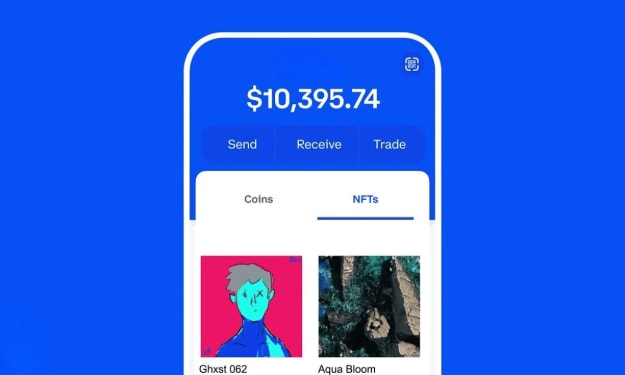The Future of Blockchain Technology and Its Potential Applications
"Blockchain Technology: A Game-Changer for Industries of the Future"

Blockchain technology has been making waves in the tech industry ever since its inception in 2008, when the first blockchain was created to power Bitcoin. Since then, blockchain has evolved into a versatile and promising technology with applications beyond just cryptocurrencies. In this article, we will explore the potential applications of blockchain technology and what the future may hold for it.
What is Blockchain Technology?
Blockchain technology is a decentralized digital ledger that records transactions on a secure and transparent platform. Each block in the chain contains a list of transactions, and once a block is added to the chain, it cannot be altered. This makes it an ideal platform for secure transactions, data storage, and even voting systems.
Potential Applications of Blockchain Technology
Cryptocurrencies
Cryptocurrencies were the first application of blockchain technology, and they continue to be one of the most popular uses. Bitcoin, the first cryptocurrency, was created in 2009 and has since grown in popularity. Other cryptocurrencies, such as Ethereum, Ripple, and Litecoin, have also gained traction. Cryptocurrencies offer a way to make secure and transparent transactions without the need for intermediaries such as banks.
Supply Chain Management
Blockchain technology has the potential to revolutionize supply chain management. By creating a transparent and secure ledger that tracks products from the source to the consumer, blockchain can help eliminate fraud, counterfeiting, and other forms of corruption. This can help ensure that consumers are getting what they paid for, and that companies are operating ethically.
Digital Identity Management
Digital identity management is another potential application of blockchain technology. By creating a decentralized system that securely stores and manages digital identities, blockchain can help prevent identity theft and fraud. This can be particularly useful for people who live in countries without a strong government or regulatory infrastructure.
Voting Systems
Blockchain technology can also be used to create secure and transparent voting systems. By creating a decentralized platform for voting, blockchain can help eliminate voter fraud and ensure that every vote is counted fairly. This can be particularly useful for countries that have experienced problems with their voting systems in the past.
Smart Contracts
Smart contracts are self-executing contracts that automatically enforce the terms of an agreement. Blockchain technology can be used to create smart contracts that are transparent, secure, and tamper-proof. This can help eliminate the need for intermediaries such as lawyers, which can reduce costs and increase efficiency.
The Future of Blockchain Technology
Blockchain technology is still in its early stages, but it has the potential to revolutionize many industries. As more companies and governments adopt blockchain technology, we can expect to see more applications and use cases. Here are some of the ways that blockchain technology is likely to evolve in the future.
Increased Adoption
As more companies and governments become aware of the potential benefits of blockchain technology, we can expect to see increased adoption. This will lead to more use cases and applications, which will help drive innovation and growth in the blockchain industry.
Improved Scalability
One of the challenges facing blockchain technology is scalability. As more users join the network, the system can become slow and expensive. However, researchers and developers are working on solutions to improve scalability, such as sharding and sidechains.
Integration with Other Technologies
Blockchain technology is likely to be integrated with other emerging technologies such as AI, IoT, and 5G. This will create new opportunities for innovation and growth in the blockchain industry.
Increased Regulation
As blockchain technology becomes more widely adopted, we can expect to see increased regulation. Governments and regulatory bodies will need to create laws and policies that govern the use of blockchain technology to ensure that it is used ethically and responsibly.
Conclusion
Blockchain technology is a promising and versatile technology that has the potential to revolutionize many industries. From cryptocurrencies to supply chain management, blockchain technology has already demonstrated its ability to provide secure, transparent, and tamper-proof solutions to complex problems. However, there are still challenges that need to be overcome, such as scalability and regulatory issues.
Despite these challenges, the future of blockchain technology looks bright. As more companies and governments adopt blockchain technology, we can expect to see more innovative applications and use cases. With the integration of other emerging technologies, such as AI and IoT, the potential applications of blockchain technology are virtually limitless.
In summary, blockchain technology has the potential to be a game-changer in many industries. Its decentralized nature and secure platform make it an ideal solution for many complex problems. While there are challenges that need to be overcome, the future of blockchain technology looks bright, and we can expect to see more innovative applications and use cases in the years to come.





Comments
There are no comments for this story
Be the first to respond and start the conversation.